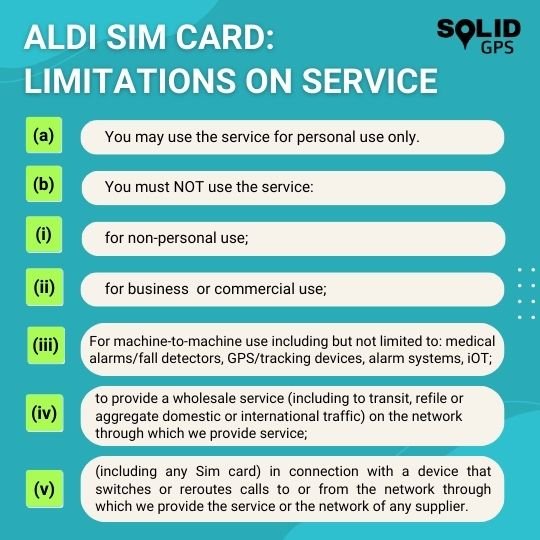A basic understanding of how GPS trackers work can help you make an informed decision when purchasing a tracking device, so you don’t get ripped off.
During the early stages of our business, we spoke with a motorcycle shop owner—a street-smart type of guy. He had been working on motorcycles for practically his entire life.
Surprisingly, he didn’t want to use GPS trackers to protect his vintage motorcycles because he didn’t trust the technology. With bikes like a 1962 BMW R69S and a 1974 Harley-Davidson in his collection, this was shocking!
Since we design, develop, and build GPS trackers for a living, this conversation highlighted one important realisation: the tech world uses a lot of jargon, but that doesn’t mean GPS trackers are difficult to understand.
That’s our mistake—and a big one at that. If people don’t understand GPS trackers and how they work, they’re unlikely to invest in one.
In this guide, we’ll break down GPS trackers and how they function, using Solid GPS as an example to help you better understand their benefits.
A GPS tracker is a small device that tracks its location using satellites. This data is transmitted through cellular networks, via the SIM card inside the GPS tracker, to a server.
From there, your phone or computer can display the location of the GPS tracker on a dashboard.
GPS tracking relies on a method called trilateration. It’s the process of calculating the position of a GPS tracker by measuring the time it takes signals from at least four satellites to reach the device. These signals provide precise information about latitude, longitude, and altitude, allowing your GPS to give highly accurate real-time location data.
This technology is fundamental to the functioning of all GPS systems. Without it, the accurate positioning of vehicles, assets, or people would not be possible.
Imagine completing a rebuild on your Harley, receiving a classic 1964 Mustang from your father, or finally purchasing that dream Jayco Silverline camper. Would you park it in your driveway, hoping that opportunistic thieves just walk on by? Of course not!
You’d take precautions—locks, alarms, or other deterrents. But what if criminals get past those defences?
That’s where a GPS tracker comes in. Not only can it help you recover your stolen vehicle, but it also provides peace of mind knowing your prized possessions are protected 24/7.
The frequency with which a GPS tracker transmits its location can vary. Wireless GPS trackers like Solid GPS send location updates every 2 minutes and slowly increase to 10 minutes.
For infrequent use, Solid GPS still sends its location every 24 hours when stationary, giving you peace of mind even if you don’t drive or ride your vehicle regularly.
Not only do GPS trackers provide real-time monitoring, but they also log historical data.
This feature allows you to review past trips and movements, ensuring you have a complete picture of where your vehicle or asset has been.
Historical data is valuable for both personal use and business operations, such as fleet management or verifying vehicle use.
Solid GPS allows you to view this historical data on your mobile app, letting you review routes, detect potential misuse, or confirm deliveries for up to a year in the past.
GPS trackers are a cornerstone of modern fleet management. They help businesses streamline their operations in several ways:
Geofencing allows you to set virtual boundaries around specific areas.
For example, you can define a geofence around your home, workplace, or any other location. If the vehicle or asset crosses these boundaries, you receive an instant alert.
This feature is especially useful for businesses managing fleets or individuals who want added protection for their vehicles.
With Solid GPS, you can create and customise geofences from your app, ensuring that you’re always informed if something unexpected happens.
The key difference between wireless and hardwired GPS trackers is the power source.
Wireless trackers are portable, powered by batteries, and ideal for temporary uses. They are great for motorcycles or trailers, as they can easily be hidden and moved.
Hardwired trackers, on the other hand, are directly connected to the vehicle’s electrical system. These trackers offer continuous tracking without the need for battery recharging but are more permanent and ideal for cars and larger vehicles.
Solid GPS provides wireless trackers that are perfect for individuals who need flexibility and easy installation.
Most GPS trackers, including Solid GPS, rely on SIM cards to transmit data over cellular networks. Our trackers come pre-installed with a SIM card that automatically connects to the best available network. This ensures consistent tracking, whether you’re in the city or a rural area.
When choosing a SIM card, make sure it supports 4G or higher to ensure future compatibility.
For instance, Australia’s 3G network is shutting down in 2024, which would render any 3G-only tracker obsolete. Solid GPS trackers are ready for the future, supporting 4G and 5G networks to ensure uninterrupted tracking.
Before we move on, if you do buy your own SIM card, make sure you’re able to use it for GPS tracking. Some, such as ALDI SIM cards, have clear limitations on their services that inhibit them from being used for location tracking.

When using GPS trackers, it’s important to comply with legal regulations and data privacy laws.
Consent is key—if you’re tracking a vehicle driven by someone else (such as an employee), it’s essential to inform them about the tracking for legal and ethical reasons.
At Solid GPS, we take data privacy seriously. Your tracking data is encrypted and stored securely, and we comply with all legal regulations related to GPS tracking.
While some GPS trackers offer advanced features such as two-way communication and panic buttons for emergency situations, these are often found in more specialised personal trackers or high-end vehicle trackers.
Solid GPS focuses on providing affordable, reliable tracking for vehicles and assets, leaving out these optional features to keep costs low.
However, it’s good to be aware that these features exist if you need additional safety measures, especially for personal or business use.
At the higher end of the price spectrum, you’ll find wired GPS trackers loaded with telematics and advanced features, ideal for fleet management.
These trackers are connected to the vehicle’s electrical system, providing detailed insights into vehicle performance and location but come at a premium.
On the lower end, you may find Bluetooth-only trackers with short battery life, primarily useful for small-scale tracking, like keeping tabs on pets or small items.
Solid GPS offers a middle-ground solution, providing reliable wireless GPS tracking with excellent battery life, a user-friendly app, and no need for costly telematics.
If your vehicle is stolen, a GPS tracker like Solid GPS can immediately notify you of its location, significantly increasing the chances of recovery.
In addition to using the tracker, we recommend sharing the incident on social media platforms like Facebook.
Thousands of vehicles have been recovered through word of mouth on these platforms.
Learn more about the four simple steps to recover your vehicle from theft.
If you have additional questions or need clarification about GPS tracking, our FAQ section below is a great resource for common inquiries and helpful information.
We’re committed to helping you understand how GPS tracking works and how it can safeguard your vehicle or assets.
If you still have questions after reviewing the FAQ, don’t hesitate to contact us at support@solidgps.com or through the contact form at the bottom of the page.
All you need to do is download the Solid GPS app from the Google Play Store (Android 4.4+) or the App Store (iOS 13+).
You can also track your vehicle on any device connected to our website, from your tablet to your computer.
Yes, you can cancel your subscription during your 31-day free tracking period, and you won’t be charged anything.
You can easily cancel your subscription in your account settings or by contacting us via email or phone.
We guarantee that Solid GPS works in Australia and New Zealand, and we also support payments in each currency.
Yes, you can. All you need to do is connect your Solid GPS tracker to your vehicle through a standard USB port.
The battery in your tracker is rechargeable, so there’s no need to replace it.
You’ll also receive reminders to your phone and email when your tracker’s battery is low, at 30%.
Since the tracker is recharged infrequently (every 3, 6, or 12 months), it will last longer than most electronic devices, with the battery beginning to deteriorate after 500 recharges.
Your tracker is designed to be tucked away inside your vehicle, hidden, and away from any harsh elements.
However, if you’re concerned that it might come in contact with dust or water, we suggest putting it in a sealed container or a ziploc bag to give it some extra protection.
Yes, and it’s super easy to keep track of all your trackers – you can add as many as you want to your account.
To make sure each one is easy to identify, you can give each of them a unique name and colour.
This can be done quickly by heading over to the account settings section on the Solid GPS app or website.
The tracker does not make any noise and it ONLY emits light while being recharged.
Your Solid GPS tracking device uses the full Telstra & Vodafone network in Australia and Spark & Vodafone network in New Zealand, whichever has the strongest signal at that point in time.
If your tracker enters an area with no mobile coverage, don’t worry! It will save the locations your vehicle travels to and will upload where it went when your vehicle is back in an area with coverage.
The subscription covers the cost of the SIM card inside your tracker and the data it uses.
Instead of negotiating with telcos and finding the best SIM card and plan prices, we organise your SIM card for you, all for a flat competitive rate.
We’re able to achieve such a low-cost subscription because we have tens of thousands of SIM cards in our system, unlocking bulk discounts for you!
The subscription also covers the cost of the Solid GPS app, local customer support, & so much more.
We also don’t plan on and have never increased the price of our subscription.
As your vehicle moves, your tracker will update its location every 2 minutes and gradually increase the time between updates to every 10 minutes.
You can also turn on ‘Emergency Mode’ to lock the tracking intervals to every 2 minutes.
Additionally, you can set geofences/boundaries to receive alerts if your vehicle begins to move.
To see what the dashboard/app looks like, please create an account at solidgps.com/registration/, and you’ll be taken to our demo dashboard.
Yes, multiple people can download the same app and log in to the same account to view the same tracker.
You can also securely share your tracker with friends or family through our sharing feature.
For example, if you’re going on a trip, share your private tracking link with others, and they can see where you are without being able to change any settings. You can cancel this link at any time too.

Solid GPS is based in Melbourne, Victoria. All design, development and assembly is done in-house.
© Copyright 2025 Solid GPS
Privacy Policy | Terms & Conditions
Get $50 Off The MEGA Solid GPS Tracker.
(And free shipping).
Only Available Until The 27th of November.
Just enter your email below and we’ll send it through.
You’ll also get our emails every once and a while.
We won’t share your info with third parties and you can easily unsubscribe at the bottom of every email.